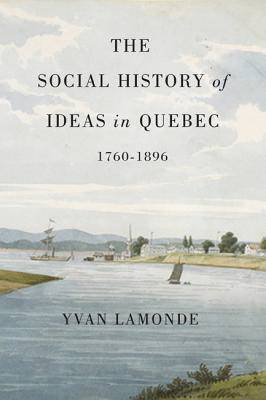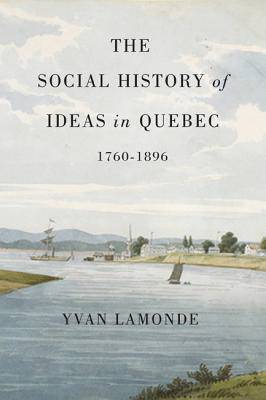
- Afhalen na 1 uur in een winkel met voorraad
- Gratis thuislevering in België vanaf € 30
- Ruim aanbod met 7 miljoen producten
- Afhalen na 1 uur in een winkel met voorraad
- Gratis thuislevering in België vanaf € 30
- Ruim aanbod met 7 miljoen producten
Zoeken
Omschrijving
In The Social History of Ideas in Quebec, 1760-1896, Yvan Lamonde traces the province's political and intellectual development from the British Conquest to the election of Prime Minister Wilfrid Laurier. From the individuals who formulated them, to the networks in which they circulated, to their reception, Yvan Lamonde focuses on ideas at work and their role in shaping Quebec history. The mapping of a complete intellectual circuit allows Lamonde to follow the strains of ideological debates - monarchism, liberalism, republicanism, democracy, revolution, ultramontanism, nationalism - over more than a century. His work is informed by an encyclopaedic reading of the print culture of the period and the book conveys a profound and nuanced knowledge of the social context and cultural channels - educational institutions, newspapers, the book trade - in which intellectual debate occurred. Lamonde argues that while these ideas concerned politics, they went beyond the political: they were a fundamental and everyday element of civic society that was expressed in the public sphere through pamphlets, the popular press, and sermons. Lamonde's scrutiny of public opinion in Quebec allows him to place such currents of thought in the colony's international context: that of France, England, Rome, the United States, and their respective metropolises. The Social History of Ideas in Quebec, 1760-1896 covers a volatile time in the province's history - from the end of the French Regime through the American invasion, the War of 1812, and the Rebellions in Lower Canada - capturing the cultural ascension of a society and the foundations of Quebec identity.
Specificaties
Betrokkenen
- Auteur(s):
- Uitgeverij:
Inhoud
- Aantal bladzijden:
- 576
- Taal:
- Engels
- Reeks:
- Reeksnummer:
- nr. 58
Eigenschappen
- Productcode (EAN):
- 9780773541061
- Verschijningsdatum:
- 1/05/2013
- Uitvoering:
- Hardcover
- Formaat:
- Genaaid
- Afmetingen:
- 167 mm x 234 mm
- Gewicht:
- 970 g

Alleen bij Standaard Boekhandel
+ 372 punten op je klantenkaart van Standaard Boekhandel
Beoordelingen
We publiceren alleen reviews die voldoen aan de voorwaarden voor reviews. Bekijk onze voorwaarden voor reviews.











